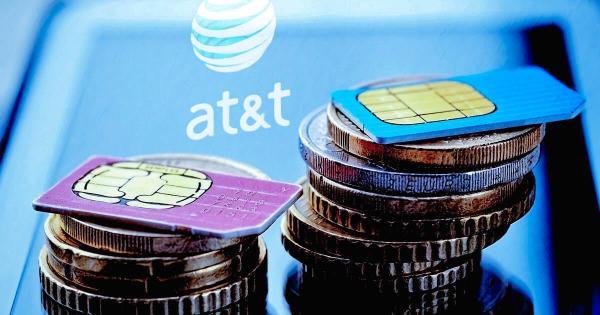
Need to know what happened in crypto today? Here is the latest news on daily trends and events impacting the Bitcoin price, blockchain, DeFi, NFTs, Web3 and crypto regulation.
Republicans and Democrats are blaming one another for failing to make bipartisan headway on a key piece of stablecoin legislation in the United States. Meanwhile, Worldcoin co-founder Sam Altman shared a video that shows people in Japan lined up to give away their iris scans in exchange for “free” Worldcoin (WLD) tokens. Also, two major bipartisan crypto bills have been passed by a key United States House panel, which could finally bring crypto clarity to the heavily criticized U.S. regulatory landscape.
Republican leader blames White House for lack of stablecoin regulations
Republican Congressman Patrick McHenry, who heads the United States Financial Services Committee, has blamed the Biden White House for failing to pursue timely stablecoin regulations.
In a July 27 hearing, McHenry said the current version of the Clarity for Payment Stablecoins Act was not based on previous negotiations with ranking committee member Maxine Waters. McHenry complained that Democrats did not “share the same sense of urgency” in reaching a bipartisan solution on stablecoins, adding that, “It was the White House’s unwillingness to compromise that has once again brought that negotiation to a halt.”
Waters, on the other hand, blamed the “impatience of Republican leadership” in failing to agree on legislation.
#PASSED: In a historic first, the House Financial Services Committee just advanced the BIPARTISAN FIT for the 21st Century Act to protect consumers and provide clear rules of the road for the digital asset ecosystem.
Up next: @HouseAgGOP considers the legislation tomorrow. pic.twitter.com/kOyLmolPuz
— Financial Services GOP (@FinancialCmte) July 26, 2023
The Clarity for Payment Stablecoins Act is one of several pieces of crypto-related legislation being considered. On July 26, representatives cleared two crypto bills by voting in favor of the Financial Innovation and Technology for the 21st Century Act and the Blockchain Regulatory Certainty Act.
Worldcoin rebuts reports of lackluster takeup as Altman cites Japan queues
Amid discussions around the falling interest in Worldcoin —the blockchain project dedicated to building a user identity network — its co-founder Sam Altman shared a video that shows people in Japan lined up to give away their iris scans in exchange for “free” Worldcoin (WLD) tokens.
A video shared by Altman shows a long queue of people in Japan reportedly waiting to collect $50 worth of Worldcoin (WLD) tokens or 25 WLD. In exchange, the users are required to provide their identification through an iris scan.
day 3 of @worldcoin launch, crazy lines around the world. one person getting verified every 8 seconds now. pic.twitter.com/vHRu1sWMT3
— Sam Altman (@sama) July 26, 2023
“One person getting verified every 8 seconds now,” wrote Altman as he shared the video of people lining up for the Orb. However, Worldcoin has not yet responded to Cointelegraph’s request for comment to confirm the accuracy of the information shared on Twitter (rebranded to X).
As explained in the Worldcoin introductory letter, the Orb is a biometric verification device that provides a World ID to users upon successful biometric data collection. The company plans to set up Orb venues worldwide to expedite the onboarding process on a global scale.
While Japanese investors seemingly showed a greater interest in Worldcoin, not many Hong Kongers shared the same enthusiasm. As Cointelegraph reported, the three Orbs in Hong Kong cumulatively reported just 200 sign-ups on the first day and 600 in total.
Although on the surface, Worldcoin sign-ups seem like a step forward toward crypto adoption, entrepreneurs, including Twitter co-founder Jack Dorsey and Ethereum co-founder Vitalik Buterin believe the proposed system would be catastrophic if it were to work against the ethos — privacy, accessibility, decentralization — that the crypto ecosystem was founded on.
Crypto bills pass congressional committee in ‘huge win’ for US crypto
A key United States House panel has approved a pair of bills that could finally give U.S. crypto firms some level of regulatory clarity — including a carving of jurisdiction between the US securities regulator and commodities regulator.
The House Financial Services Committee approved the Financial Innovation and Technology for the 21st Century Act in a 35-15 vote which would establish rules for crypto firms on when to register with either the Commodity Futures Trading Commission (CFTC) or the Securities and Exchange Commission (SEC).
The first crypto regulatory framework bill just passed @FinancialCmte!
Total count:
35 – Yes (All Rs. Ds include Himes, Gottheimer, Horseford, Torres, Nickel and Petersen)
15 – NoSee you tomorrow for part 2 in @HouseAgGOP pic.twitter.com/ij3pZWgzdt
— Ron Hammond (@RonwHammond) July 27, 2023
Republican Congressman, French Hill, who also serves as the Vice-Chairman of the House Financial Services Committee said he was proud the bill had passed its first hurdle, and that it had been passed by the committee with bipartisan support.
“We have crafted landmark legislation that establishes robust consumer protections and clear rules of the road for market participants while keeping innovation in the United States.”
Meanwhile, the bipartisan “Blockchain Regulatory Certainty Act” led by Republican Congressman Tom Emmer and Democratic Congressman Darren Soto, aims to set out guidelines that remove hurdles and requirements for “blockchain developers and service providers” such as miners, multi-signature service providers and decentralized finance (DeFi) platforms.
This article does not contain investment advice or recommendations. Every investment and trading move involves risk, and readers should conduct their own research when making a decision.




